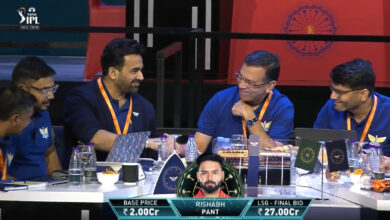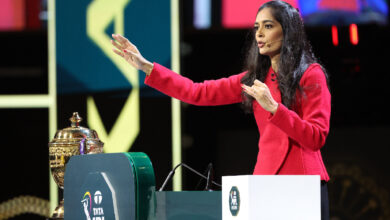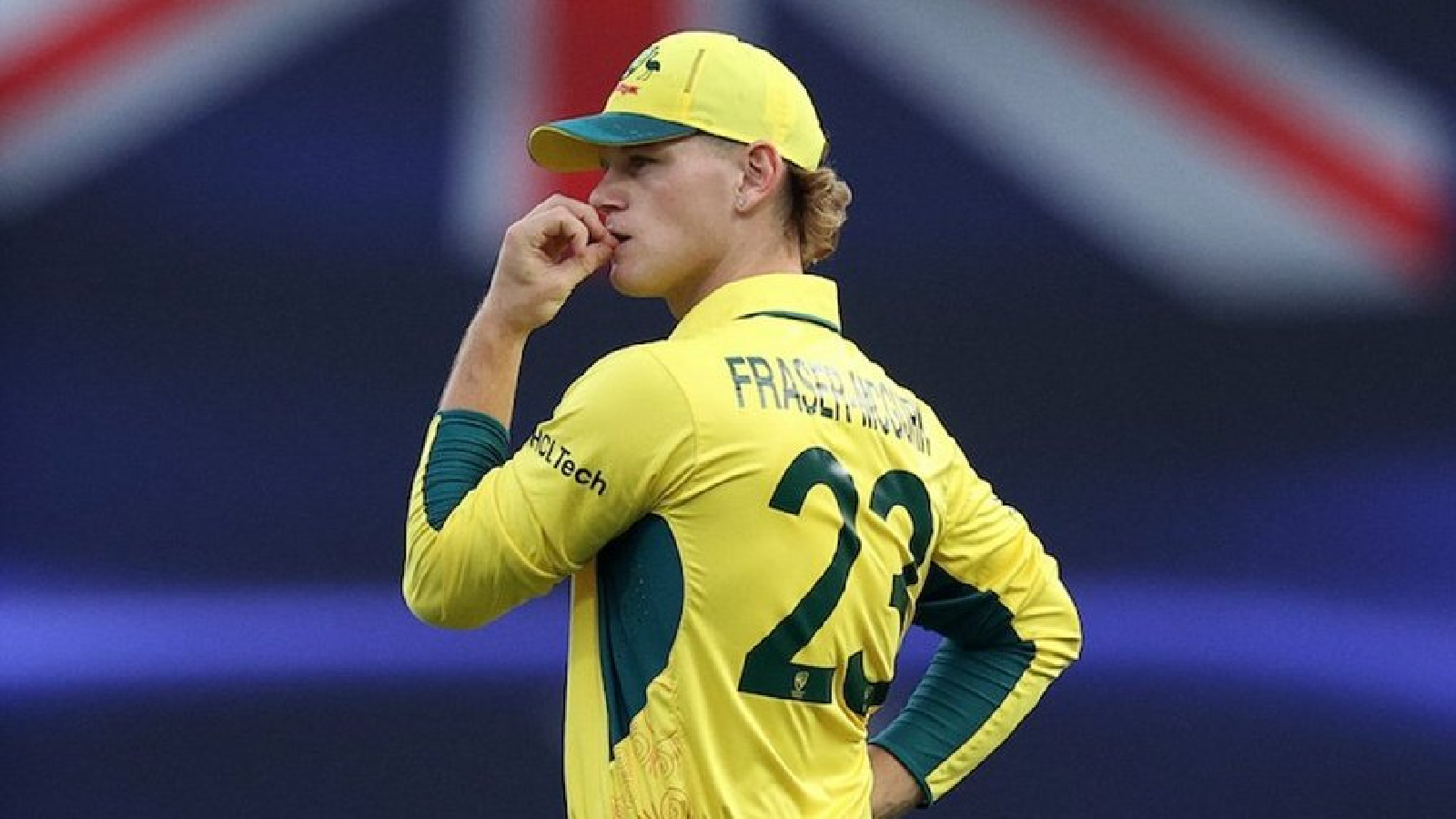India vs England: Virat Kohli’s empathy towards pacers trumps MS Dhoni’s passivity

Virat Kohli’s tenure as India’s Test skipper, now approaching its two-year landmark, has been refreshing in several ways.
An aggressive, front-foot mentality has been evident from day one: play to win, never to draw (unless absolutely necessary). Kohli’s India doesn’t shy away from conflict; at times, it thrives on it — very much in the image of its leader. The skipper’s interactions with the media too have been more upfront and unfiltered than his predecessors.
The five-bowler strategy has often been adopted, though not with the stubbornness that was first expected of Kohli. He’s varied it by either playing four bowlers along with a bowling all-rounder or by reverting to a more traditional setup of four bowlers along with six specialist batsmen. He has kept it pleasantly flexible.
Mohammad Shami (2R) celebrates the wicket of Alastair Cook in second Test.
Kohli-powered winds of change have had a significantly positive impact on the Indian pace attack and subsequently, its image too. When the skipper first took charge of the team, his immediate focus was to encourage his bowlers. More specifically, his faster bowlers who were too often seen as the black sheep of the team.
Nearly two years into his tenure, that perception is now gradually changing. His fast bowlers are playing a greater role, thereby responding to the captain’s verbal and physical arm around their shoulders. Under MS Dhoni, Kohli’s predecessor, they were too often sideshows with little support. “(Pacers) need to start using their brains more,” a livid Dhoni once remarked — one of several times he publicly ripped into his bowlers.
In Kohli’s case, there’s a greater sense of understanding and recognition for their toil. “We don’t play only spinners, we play fast bowlers as well,” the skipper said after the win over England in Vizag. “We understand their contribution is also important.”
You could argue that Dhoni was right in his methods too. He would treat the bowlers as professionals—if you’re good enough to be selected for the Indian cricket team, you shouldn’t require handholding or pampering. He would adopt a passive approach.
In contrast, Kohli’s ready to reach out to help and even put up a firm front to defend his bowlers publicly. It’s a smarter approach in theory — Kohli is aware his demands of aggression in Tests and yearnings to succeed overseas as Test skipper cannot be met without a confident and firing pace attack. It’s proving to be an astute approach in practice as well.
Mohammed Shami breaking Alastair Cook’s stumps in the second Test felt symbolic. An Indian pacer’s very own ‘Vine’ moment which garnered the amount of praise and eyeballs that perhaps the dismissal did not merit on its own (after all, the stumps did not break because of the speed of the ball) but it made up for any gap in appreciation for the quieter work previously done by Shami and Co.
Shami’s dismissal of Joe Root on the final day in Vizag, where he used the entire width of the crease to bamboozle one of the world’s best, was special too. So was Umesh Yadav providing India a crucial breakthrough, that of Jonny Bairstow, to end a 110-run stand between him and Ben Stokes in the first innings of the same Test.
Expectations and responsibilities appear to be shifting. Where India’s pace bowlers were once considered fillers to spinners on subcontinent tracks, and wickets were seen as a mere bonus, they’re now firmly in the game. Targets have been set higher. In Kohli’s short tenure so far, their response has been evident.
Ishant Sharma’s five-wicket burst in Colombo gave Kohli a first series win as skipper last year. Bhuvneshwar Kumar’s five-for set up the win over New Zealand in Kolkata, helped by two three-wicket hauls by Shami in the same Test match.
Bhuvneshwar’s five-wicket haul came a little less than two months after he achieved a similar feat in West Indies — again in a winning cause. Yadav, meanwhile, cleaned up the tail during South Africa’s infamous ‘blockathon’ in Delhi last year, while Shami also contributed with five and four-wicket hauls in Australia and West Indies respectively.







